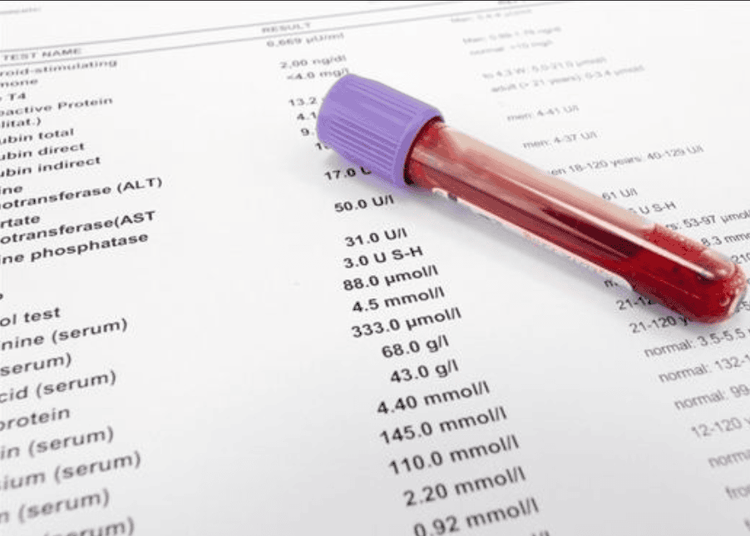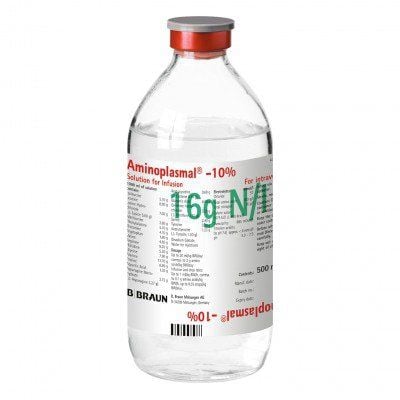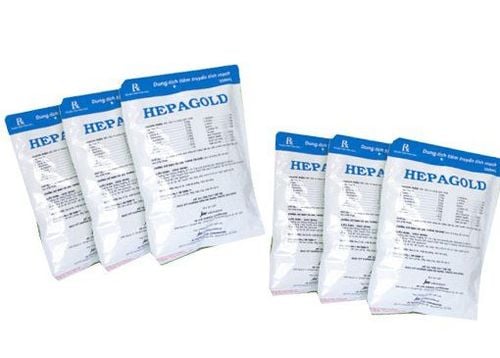This is an automatically translated article.
Article written by BSCKII Bui Thi Ha, Department of Pediatrics - Neonatology - Vinmec Ha Long International Hospital
Most babies have mild to moderate anemia with no symptoms. Only when a child has severe anemia will symptoms appear. If the infant is anemic without early detection and timely treatment, it can leave many dangerous complications.
Anemia is a condition in which hematocrid (Hct) or hemoglobin (Hgb) is below average for age. Diseases due to various causes
1. Causes of anemia
The most common causes, including:
Obstetric causes: such as placental abruption, placenta previa, trauma to the placenta or umbilical cord at birth, abnormal blood vessel rupture of the placenta, ruptured umbilical cord. Fetal-maternal blood transfusion: 8% of normal pregnant mothers have maternal blood transfusion. Fetal blood transfusion – placenta. Twin blood transfusion. Blood loss due to bleeding such as intracranial bleeding, subdural bleeding, subcutaneous hematoma. Blood loss due to treatment, such as excessive blood collection, is most common in premature infants. Increased destruction of red blood cells
In red blood cells: G6PD deficiency, sickle cell disease, α- thalassemia. In addition to red blood cells: Immune hemolysis (such as incompatibility of the ABO, Rh, and subgroups...), hemangioma (Kasabach Merritt syndrome), acquired hemolysis (due to infection, drug use) ...) Decreased red blood cell production
Anemia in premature infants due to transient erythropoietin deficiency; Anemia due to hypoplasia or marrow aplasia; Bone marrow suppression (Rubella or Parvovirus 19 infection); Nutritional anemia (iron deficiency) is common after infancy.

Trẻ thiếu men G6PD làm tăng nguy cơ thiếu máu
2. Symptoms
Symptoms of the disease vary depending on the severity of the disease and accompanying signs. Mild cases of anemia may be asymptomatic
2.1. The following clinical symptoms may be encountered. Pale skin, pale mucous membranes; Lethargy, poor feeding; Respiratory depression, tachypnea, increased oxygen demand; Tachycardia, low blood pressure; Liver and spleen enlarged in cases of hemolysis; Severe anemia may show metabolic acidosis. 2.2. Subclinical Depending on the specific disease, there are different subclinical manifestations:
Blood count: reticulocytes, platelets; Blood group ABO, Rh, Coomb test; Bilirubin (total, direct, indirect); Fetal red blood cells in the mother's blood (HbF) in the case of blood from the fetus to the mother's blood through the placenta; Transthoracic echocardiography detects early cerebral hemorrhage, especially in premature neonates.

Dựa vào kết quả xét nghiệm giúp bác sĩ chẩn đoán chính xác trẻ thiếu máu
3. Treatment
Depending on the cause, the degree of anemia, there are different treatment methods.
3.1. Before birth If anemia is severe, fetal blood transfusion
3.2. Postpartum Anemia in premature infants:
Limit blood collection for many tests Iron and folic acid supplementation Treatment with recombinant human erythropoietin: dose 75-300 units/kg/week, injected subcutaneously for 4 weeks, starting at 3-4 weeks Red blood cell transfusion as indicated Other causes of anemia: Treat according to cause. Blood transfusion as indicated in each case
4. Prevention
For full-term infants: if the child is not breastfed, feed the child with iron-fortified formula 2mg/kg/day or take iron supplement 2mg/kg/day (if iron-fortified formula is not available). Premature birth: Give the baby supplements

Cha mẹ có thể bổ sung sắt cho trẻ theo hướng dẫn của bác sĩ chuyên khoa Nhi
+ Erythropoietin may be considered for treatment.
Iron deficiency anemia can cause dangerous complications for children's health and mental health, so parents need to observe and timely supplement this important source of vitamin.
In addition to dietary supplements, parents can give their children supportive foods containing iron and essential micro-minerals such as zinc, lysine, chromium, selenium, vitamin B... to help meet their full needs. meet the nutritional needs of children. At the same time, these essential vitamins also support digestion, enhance nutrient absorption, help improve anorexia, and help children eat well.
>> Parents can learn more: What disease can iron deficiency cause? The article was professionally consulted by Dr. Phan Dinh Thuy Tien - General Internal Medicine - Department of Medical Examination & Internal Medicine - Vinmec Nha Trang International General Hospital.
Please regularly visit Vinmec.com website and update useful information to take care of your baby and family.














